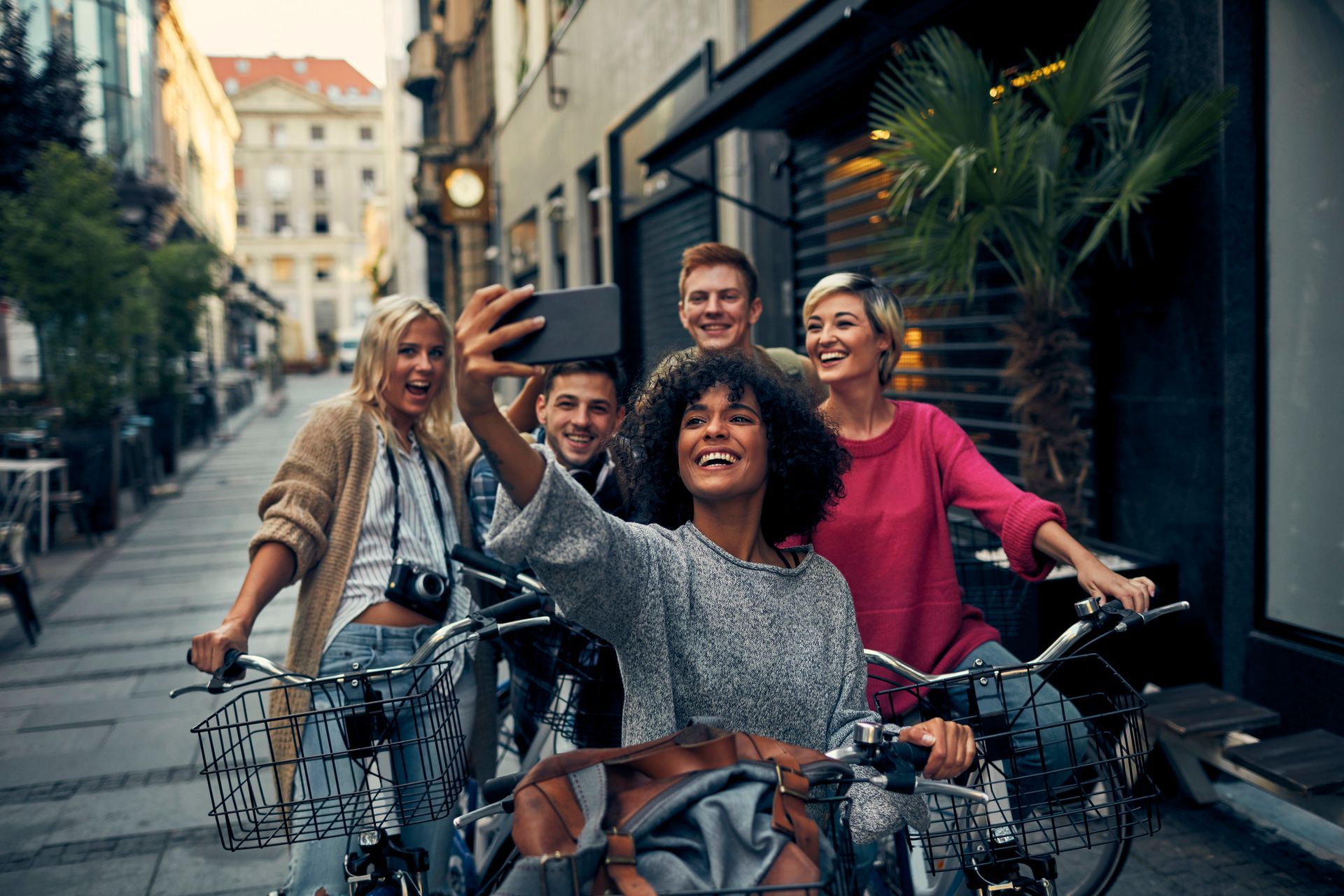News & Resources
Gen Z sacrifices nights out and new clothes to afford holidays
Advantage Travel Partnership releases new data revealing the extent of sacrifices people are willing to make to afford holidays.

- 86 percent of Gen Zs are cutting back on takeaways, eating out, nights out and buying new clothes
- 32 percent of Gen Zs have taken on side-hustles such as e-commerce ventures or social media influencing
- 35 percent of 45-64-years-old are cutting back on home improvements
- 46 percent of people between 25-54-years-old are considering buying or renting a smaller house
- New popular destinations emerging based on affordability such as Montenegro, Slovenia and Albania
In today’s economic climate, the holiday is still king, but how Britons afford their break is changing fast. According to new research from Advantage, younger generations are embracing entrepreneurialism and sacrificing everyday pleasures, while older generations are delaying big-ticket purchases like home improvements and cars to protect their travel budgets.
Advantage Travel Partnership, the UK’s pre-eminent network of travel agents and travel management companies today unveils new consumer research that shows that 86 percent of Gen Zs are cutting back on takeaways, eating out, nights out and buying new clothes to afford a holiday. In Manchester specifically, Gen Zs are even skipping gym memberships, opting for free workouts instead.
Hustling vs home improvements
This new data reveals that young people aged 18–24 are making big sacrifices to get away. A striking 32 percent have also taken on side-hustles such as e-commerce ventures or social media influencing to save for holidays, with Essex leading the charge as 50 percent of Gen Zs based there, report starting a side-hustle. Notably, 61 percent of 18–24-year-olds surveyed now book holidays extra early as their top saving strategy.
For older generations, the key to saving for a holiday seems to be by cutting back on home spend with 35 percent of those surveyed between 45-64-years-old saying that they are putting off making home improvements. This is a trend that is particularly prevalent in Scotland, the Southeast and Northern Ireland.
According to the data, 46 percent of people between 25-54-years-old are considering buying or renting a smaller house to afford a holiday. High mortgage rates are causing a shift in home buying trends with many opting for smaller properties to manage affordability as they value better financial security and more disposable income to afford a holiday.
The driving force behind saving
30 percent of all people surveyed said that they were reducing costs on transportation by buying a second-hand car, rather than a new car outright or on finance, in order to afford a holiday. This is particularly true for people based in the East of England, London and the Northwest. According to the Society of Motor Manufacturers and Traders (SMMT) the UK’s new car market fell -10.4 percent in April 2025, the sixth fall in the last seven months. Whilst this undoubtably reflects a fragile economic backdrop, this new Advantage data suggests that this is also in part a result of people looking for new ways to reserve budgets and afford that much-needed break away.
Family first
Pointing to a growing recognition of the emotional value of a holiday, families are increasingly choosing quality time over traditional status symbols. Britons are also prioritising family holidays by saving on childcare costs, with 10 percent of respondents switching to cheaper nursery or childminder options and 10 percent considering pulling their children out of private schools, especially in Scotland and the Southeast.
It is clear that people recognise the importance of a holiday for the family unit, spending quality time together on holiday is incredibly important to people and they are willing to opt for cheaper child-care in order to afford that all important break.
Trending value for money destinations
In terms of where people are choosing to go on holiday, destinations such as Spain, France, and Greece remain staples, but new favourites are emerging based on affordability with Montenegro, Slovenia and Albania coming out on top. These destinations follow the “destination dupes” trend in that they are more budget-friendly alternatives to traditional hotspots. In terms of long-haul getaways, the survey reveals that interest is also growing in Madagascar and Colombia.
For 57 percent of Gen Z travellers, culture is the biggest draw with museums, festivals, and history topping their wish lists. Meanwhile, 57 percent of 25–34-year-olds are seeking rest, relaxation, and wellness, a sign of the pressures faced by this career-building, family-forming age group.
Interestingly, 12 percent of all respondents say they holiday specifically to escape the UK’s political and economic climate, rising to 36 percent among 18–44-year-olds. When it came to the environmental impact of travel, 49 percent of respondents said that value for money was more important when it came to booking accommodation and travel. 25 percent said that they were either not aware of the environmental impact, didn’t care about the impact, or didn’t believe the environmental impact of travel impacted them.
The power of the travel agent
With travel disruption still fresh in the public’s mind, many travellers are increasingly turning to travel agents for support. Nearly a quarter of those surveyed reported experiencing issues with their accommodation when on a recent holiday, while 19 percent faced flight-related problems such as overbooking or cancellations. Among those who encountered difficulties, 37 percent said they turned to their travel agent for help. Of those, an impressive 86 percent reported that their issues were successfully resolved. This growing reliance on professional support reflects a broader shift in consumer priorities, with reliability and reassurance now playing a key role in travel planning. Notably, 29 percent of business travellers expressed a preference for having a travel agent available throughout their trip. This is a clear indication that expectations for leisure travel are rising to match the standards set by business-class experiences.
Julia Lo Bue-Said, Chief Executive Officer of Advantage Travel Partnership, said: “The findings in our research reinforce what we’ve seen across the travel sector in recent years as budgets have got tighter. Whether it’s cutting back on day-to-day spending or delaying major life purchases, travellers are making significant sacrifices to prioritise time away. We are also clearly seeing a shift in mindset, after years of uncertainty, travellers want peace of mind and that’s exactly what the travel agent provides. As people increasingly sacrifice to afford a holiday, it becomes even more important that that holiday is protected in the face of any disruption and that they are fully supported by travel agents. The fact that 86 percent of issues people faced were resolved when booked through an agent shows just how critical that support is. Booking through a trusted agent isn’t just about convenience anymore, it’s about getting that inspiration, expert advice, protection, value for money and peace of mind for a holiday, that been well earned and afforded in many cases, through significant sacrifice.”
Press contact

Alexis Coles Barrasso
Communications Manager
Share article

